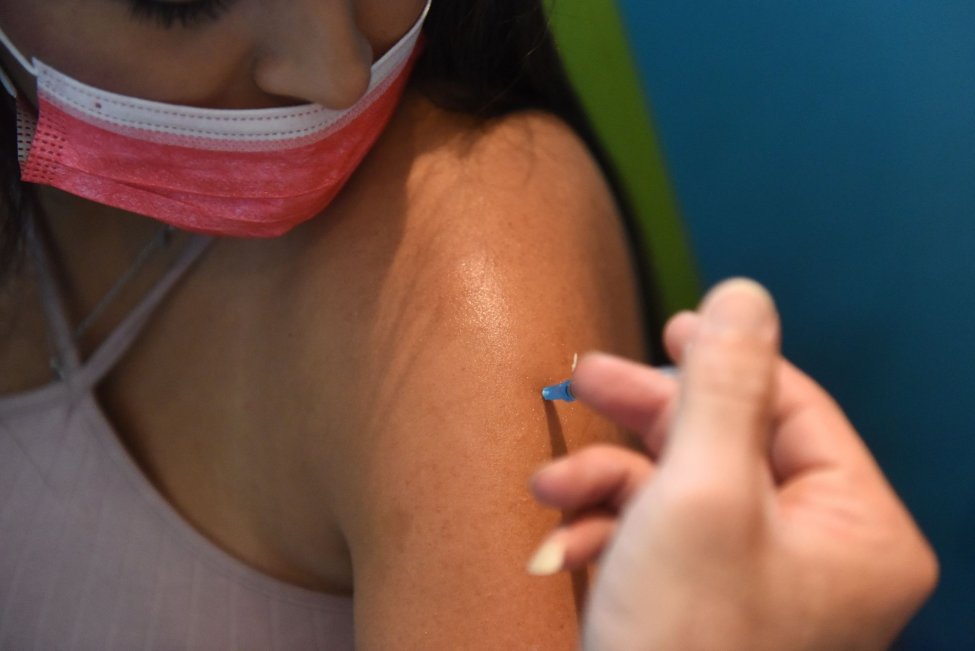Oct. 29 (UPI) — Becoming vaccinated against COVID-19 offers more protection against the virus than past infection, according to data released Friday by the Centers for Disease Control and Prevention.
Previously infected adults had a more than five-fold higher risk for reinfection than those who had received both doses of either the Moderna or Pfizer-BioNTech vaccine, the data showed.
This was true for at least six months after the second dose or initial infection with the virus, the agency said.
“We now have additional evidence that reaffirms the importance of COVID-19 vaccines, even if you have had prior infection,” CDC Director Dr. Rochelle P. Walensky said in a statement.
“This study adds more to the body of knowledge demonstrating the protection of vaccines against severe disease from COVID-19,” she said.
Among 6,328 fully vaccinated adults included in the analysis, 324 infections occurred, for a rate of 5%, during the first six months following receipt of the second dose, the data showed.
Of the 1,020 unvaccinated adults in the study, 89 cases occurred, representing a 9% infection rate.
Nearly 80% of the cases that occurred in fully vaccinated adults were among those age 65 and older, according to the CDC.
Conversely, roughly one-third of the cases among the unvaccinated were in people ages 18 to 49.
Among adults hospitalized with symptoms similar to COVID-19, unvaccinated people with prior infection within the past three to six months were 5.49-times more likely to have laboratory-confirmed COVID-19 than those who were fully vaccinated within the same timeframe, the CDC said.
The findings are based on an analysis of data from 187 hospitals nationally.
In addition to the new data on vaccine effectiveness, the CDC’s Advisory Committee on Immunization Practices on Friday updated its guidance on booster doses for the Moderna and Pfizer-BioNTech vaccines, as well as the one-dose Johnson & Johnson vaccine.
The committee now recommends that people age 65 and older, adults age 18 and older living in long-term care facilities and those ages 50 to 64 with certain chronic medical conditions receive a booster dose of the Moderna and Pfizer-BioNTech vaccines at least six months later.
Meanwhile, all adults age 18 and older given the Johnson & Johnson vaccine should get a booster shot at least two months after their first dose.
“The best way to stop COVID-19, including the emergence of variants, is with widespread COVID-19 vaccination,” Walensky said.
In addition, spread can be contained “with disease prevention actions such as mask wearing, washing hands often, physical distancing and staying home when sick,” she said.
